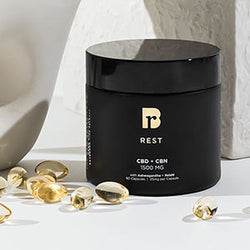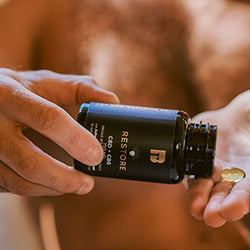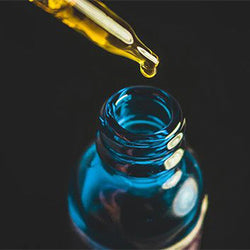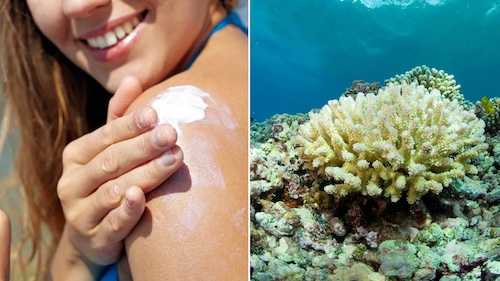By now most of us recognize the importance of protecting the ocean's ecosystem and promoting the use of environmentally friendly products that help protect our planet. However, understanding what products are actually environmentally friendly is very difficult, in part because the brands that sell harmful and non-environmentally friendly products would never disclose that. Moreover, they take advantage of the lack of oversight on terms like "Reef-Safe" and "Natural" and just make claims that are clearly untrue. We are going to focus on one of the most recent environmental trends Reef-Safe Sunscreen also referred to as "Reef Friendly” or “Reef Compliant". While it is true that there is no agreed upon testing protocol to determine what is truly "Reef-Safe" it is widely recognized that to be truly reef-safe a product must have two critical components.
1. Must be mineral sunscreen made with zinc oxide and/or titanium dioxide.
2. Must be free of at least these two harmful chemicals. Oxybenzone and Octinoxate.
In a bold and much needed move Hawaii State Legislature approved Bill 2571 "Hawaii Act 104 Reef Compliant" banned any sunscreen containing Oxybenzone and Octinoxate. This is a great step. However, this definition gave companies the opportunity to remove those two ingredients and market themselves as "Reef Safe" which is just not enough.
Sustainable Tourism Association of Hawaii published this example of a company that is deceiving the public and taking advantage of the term "Reef Friendly"

"Reef-safe sunscreen’s main ingredients are zinc oxide and/or titanium dioxide, and they are the only sunscreens the FDA regards as generally ... safe and effective” at this time said Dr. Lawrence Eichenfield, chief of the pediatric and adolescent dermatology division at Rady Children’s Hospital-San Diego
Adding to the confusion, monster retailers like Walmart and Amazon are full of products that are harmful for people as well as the environment and many of these products claim otherwise. With so much money on the line these retailers will never step in to regulate for quality. To make things worse for the consumer popular brands spend millions of dollars to advertise on google and social media using keywords "Natural" and "Reef-Safe" despite their products being neither of those things. Give it a try google "Reef Safe Sunscreen" and see who comes up in the first result.
What exactly is Reef-Safe Sunscreen?
Reef-safe sunscreen is one that does not contain chemicals that are harmful to coral reefs and marine life. Chemicals found in traditional sunscreens, such as oxybenzone and octinoxate, have been linked to coral bleaching and have a negative impact on the ocean's ecosystem. Reef-safe sunscreen, on the other hand, contains natural ingredients that are safer for the ocean and humans such as zinc oxide and titanium dioxide.
Why Use Reef-Friendly Sunscreen?
Aside from protecting the ocean's ecosystem, reef-safe sunscreen provides additional benefits such as better UV ray protection and is gentle on your skin. When compared to chemical sunscreens, zinc oxide and titanium dioxide provide broad-spectrum protection against both UVA and UVB rays and are less likely to cause skin irritation. Reef-safe sunscreen is also ideal for people with sensitive skin because it is free of harsh chemicals that can cause allergic reactions. Furthermore, it is better for the environment because it does not contribute to coral bleaching and is biodegradable, which means it does not leave harmful residues in the ocean.
Choosing the Best Reef-Friendly Sunscreen
When shopping for reef-safe sunscreen, make sure to read the label and look for natural ingredients like zinc oxide and titanium dioxide. Many "reef-safe" sunscreens may still contain harmful chemicals, so do your research and choose a reputable brand. Always avoid sunscreen that contains the following harmful chemicals not only are they not Reef-Safe they are not human safe either.
- Oxybenzone
- Avobenzone
- Homosalate
- Octinoxate
- Octocrylene
- Cinoxate
- Dioxybenzone
- Ensulizole
- Meradimate
- Padimate O
- Sulisobenzone
Advantages of Reef-Safe Sunscreen
To begin with, as previously stated, reef-safe sunscreen does not contain the chemicals found in conventional sunscreens that contribute to coral bleaching. Coral bleaching is the process by which coral reefs lose their color and die due to a variety of factors such as rising water temperatures and pollution. Chemicals found in many traditional sunscreens, such as oxybenzone and octinoxate, have also been linked to coral bleaching. Reef-safe sunscreen is not only better for the environment, but it is also better for your skin. The active ingredients in many reef-safe sunscreens, zinc oxide and titanium dioxide, are natural minerals that provide broad-spectrum protection against both UVA and UVB rays. Unlike chemical sunscreens, which absorb UV rays, these minerals form a physical barrier on the skin's surface that reflects UV radiation. Another advantage of reef-safe sunscreen is that it is less likely to irritate the skin. Many traditional sunscreens contain chemicals that can be irritating to the skin, especially in people who have sensitive skin. Reef-safe sunscreens, on the other hand, are generally gentler on the skin because they contain natural ingredients that are less likely to cause allergic reactions. It is critical to look for biodegradable sunscreen when shopping for reef-safe sunscreen. Biodegradable sunscreens degrade faster in the ocean, reducing their impact on marine life. Furthermore, many reef-safe sunscreens are water-resistant, making them ideal for swimming and surfing.
To summarize, using reef-safe sunscreen is a critical step that we can all take to protect the ocean's ecosystem and reduce the negative impact of traditional sunscreens on coral reefs and marine life. We can protect ourselves and the environment by using eco-friendly products like reef-safe sunscreen, while also enjoying the benefits of a high-quality sunscreen that is gentle on the skin and provides broad-spectrum UV protection.
When you go to purchase your sunscreen make sure it is as natural as possible, if you can't pronounce an ingredient that's probably enough of a reason to avoid. Buy only sunscreen that is made with zinc oxide and/or titanium dioxide and does not contain oxybenzone and octinoxate.







